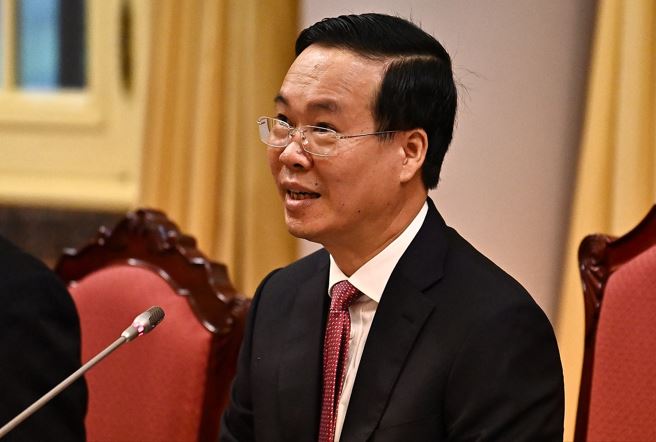Vietnam’s parliament, on Thursday, endorsed President Vo Van Thuong's decision to step down, making him the latest notable leader to leave office as the communist country experiences a widespread crackdown on corruption and political conflict.
The ruling Communist Party announced on Wednesday that Thuong had resigned after only a year in the role, stating that he was found to have committed unspecified “violations and shortcomings”.
The 53-year-old’s departure, which had been the subject of rumors for several days, occurs as Vietnam encounters significant — and atypical — political turbulence.
The National Assembly — a rubber-stamp body — voted to remove Thuong in a private session at an extraordinary meeting, according to the state-run Tuoi Tre news website.
Vietnam has long valued stability and careful management of political change, but this has been disrupted by a comprehensive crackdown on corruption, believed to be orchestrated by party General Secretary Nguyen Phu Trong — considered the most influential figure in the country.
The purge also led to the abrupt resignation of Thuong’s predecessor, Nguyen Xuan Phuc, last January.
Several of the country’s top business leaders have been prosecuted in major fraud and corruption cases, with one facing a possible death sentence in a $12.5-billion bond scam case.
The party’s politburo, its key decision-making body, has now lost four of its 18 members since 2021 — two presidents, a deputy prime minister and a former trade minister.
Before Phuc’s resignation last year, only one other Communist Party president had ever stepped down, and that was for health reasons.
Linh Nguyen, a Vietnam analyst at global risk consultancy Control Risks, described the upheaval as a “PR disaster” that jeopardized the country’s reputation for stability.
Last week, as speculation about Thuong’s future built, the Dutch royal family said Vietnam had cancelled a planned state visit this week by King Willem-Alexander and Queen Maxima “due to internal circumstances”.
The turmoil emerges as Vietnam aims to attract foreign investment, particularly from the United States, to transition its economy from low-value manufacturing to high-tech products like semiconductors.
The US President Joe Biden’s administration aims to significantly increase business investment in Vietnam to assist in developing a high-tech sector and reduce the American economy's dependence on China.
Linh remarked that it seemed factions within the Communist Party are already vying for influence in advance of the crucial party congress in 2026.
“The politicised anti-corruption campaign is becoming more intense as the next party congress approaches, creating further uncertainty about who will be targeted next,” she told AFP.
“Losing the youngest politburo member and youngest top leader also raises concerns over the ageing leadership in Vietnam as most of them will be overaged by the next party congress in 2026.”
No detailed explanation has been given of Thuong’s “violations”.
But earlier this month, the Ministry of Public Security expanded a probe into an infrastructure development company in three provinces, including central Quang Ngai, where Thuong was formerly the party chief.
The ministry stated that Phuc Son company was suspected of making false financial statements to avoid taxes, and its investigators detained nine individuals, including five officials from Quang Ngai.
However, Linh mentioned that Thuong's alleged misconduct was probably minor in the context of the nationwide effort to fight corruption.
Analyst Benoit de Treglode from the Institute of Strategic Research in Paris suggested that internal party maneuvers to determine who will replace General Secretary Trong were the more probable reason.
AFP



